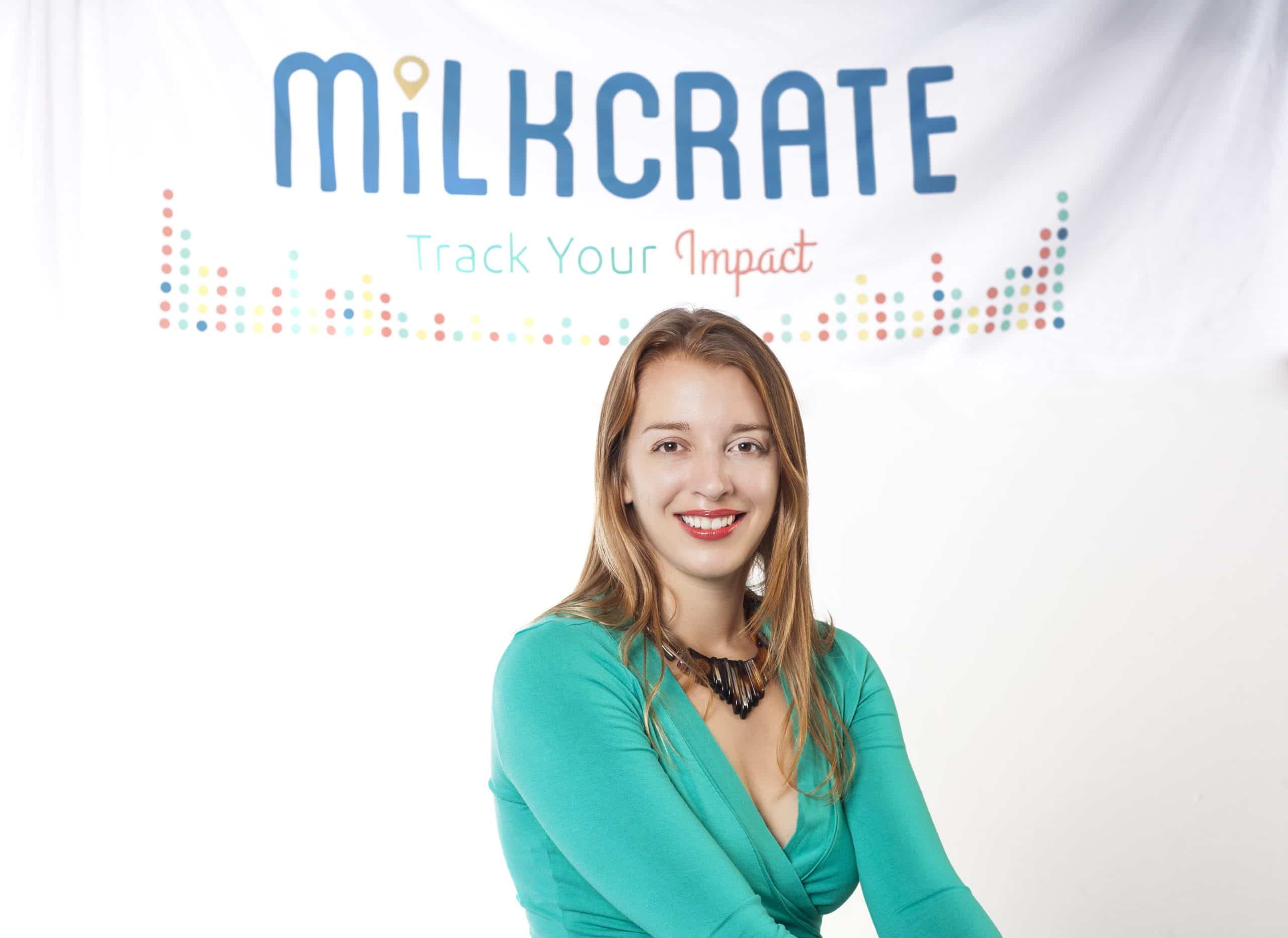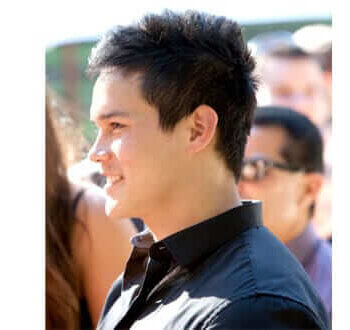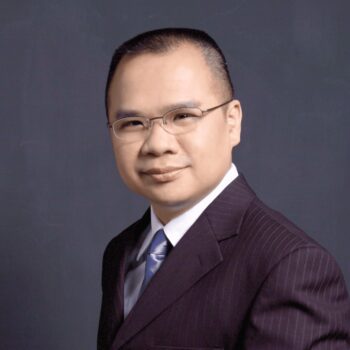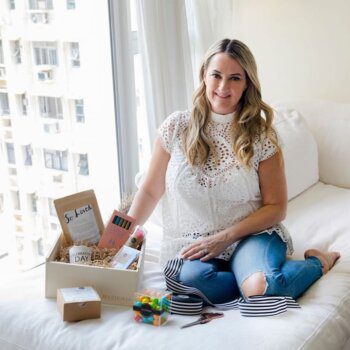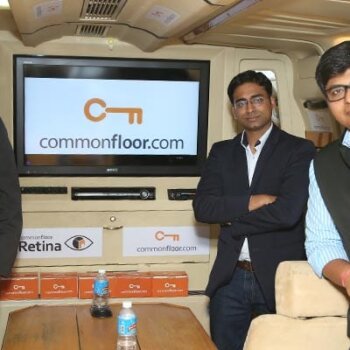(Women on Top in Tech is a series about Women Founders, CEOs, and Leaders in technology. It aims to amplify and bring to the fore diversity in leadership in technology.)
Here is our interview with Morgan Berman, Founder/CEO of MilkCrate. Morgan is a multidisciplinary designer with experience in architecture, UX design, urban planning, digital and 3d art, blog writing, and homegrown meals. Her focus is on growing sustainable thinking in urban contexts, particularly her hometown of Philadelphia. She was listed by the UN Foundation as one of the “Top 10 Female Entrepreneurs to Watch” in the world and invited to the White House for Clean Energy Plan talks. Last year she also joined the World Economic Forum as a Global Shaper to help advance social entrepreneurship in Philadelphia
What makes you do what you do?
I am an optimist. And I am optimistic about the upswing in a worldwide sustainability movement and with it the seismic shift in international business practices and the engines of commerce. Over centuries we have generated so much profit, so many advances and opportunities in equal measure with waste, inequality, and pollution. But now? Within the S&P 500, 82% of companies are reporting on sustainability and the number one factor for a millennial selecting a new job is the chance to make a difference in the world. Times have changed.
We are no longer allowing the way we used to do things to dictate how we will do them today or tomorrow. “Doing business as usual” is no longer an acceptable excuse or curtain to hide any manner of social or environmental sins. Now business is expected to be transparent and proactive. The men and women who drive these businesses believe in this wholeheartedly. I am excited by them. I am driven by them. MilkCrate’s team and business model are devoted to building a platform to spur this growth faster, ever more productively.
On a less philosophical, more day-to-day level – I love design. I enjoy the aesthetic and logical problems that come with developing software and a brand. I also love the struggle of building a team that is coherent, productive and fun. The art of running a startup is not enough, but it is a big part of why I do what I do.
And of course, I love a challenge. The odds are so against me, and against us for so many reasons. As a woman raising capital the odds are against me. As a first-time tech founder, the odds are against me. As a startup of any kind, the odds are against me. These are exactly the kind of odds I thrive against. I’ve gotten more in touch with this quality of mine through my newfound love of training and competing in Brazilian Jiu-Jitsu. My experience with this sport has been transformative and by far the best thing I’ve ever done for my mental health and sense of self … particularly during the arduous journey of company creation. This martial art renews me, renews my energy and my spirit.
The biggest lessons you can learn as a new jiu jitsuka is that you must accept that you learn through failure and that the only way to succeed, to win, is to rely on a strong mental calm and experienced technique. The dynamics of the sport are designed to level the playing field, so that any natural strength, size or aggression are not an asset. The sport demands experience and technique above all else. I can and have beaten people larger, stronger, and more aggressive than me. I am relying on skills which I am slowly building by training with teammates who have done this much longer than I have. That’s it. That’s the ‘secret’.
These lessons are perfectly applicable to running a startup. The people who become black belts are the white belts who never quit. The people who build successful companies are the ones who never give up. From my practice of this sport, I have learned that I love pushing through and finding that next level of resolve, of learning, and of grit.
How did you rise in the industry you are in?
After enduring my first quarter century ‘what am I doing with my life’ crisis, I was inspired to shift my focus to a cause that would employ my leadership and design talents, just as I had in college. Sustainable Design felt like the right combination of serving my city and our planet while getting back to the work that could nourish me personally.
The development of my daily sustainable actions was not an easy path – learning how to eat local food, or compost with worms – it took effort, knowledge, and motivation – all of this opened my eyes to an important if not obvious realization: If everyone was going to start living their values there had to be an easy, communal way to do it. Writing my grad school thesis, this realization morphed into a business, into MilkCrate. Later, after we learned about the huge need for employee engagement and CSR data tracking in the corporate world, I blinked again, took a deep breath and made a radical business model pivot, one that launched us into the B2B software world.
I knew I would need help with the tech so I did some research on tech meetups and learned about Code for Philly – this was how I entered the startup community for the first time. The people I met there helped me find other places to network and find the teammates that would eventually help me build my company.
Why did you take on this role/start this startup
Usual? What’s usual? I had something like 11 jobs between college and graduate school until I started my company. I have had an unusually large range of experiences working for others, learning what I can do, like to do, and what I can’t and don’t want to do. I’ve learned that I am best employed when I am leading a group, and I’ve been leading in one way or another all my life. Junior year my high school labeled each of my classmates with one unique quality. Mine? ‘Outspoken’. I was the President of Student Government. Later I got a degree in Women’s Studies where I obsessed over the suffragists and their movement’s leadership. Now I compete in Brazilian Jiu-Jitsu.
I have always gone after challenges that require being bold while bringing people together. I just have. Everything else is boring. In addition to more typical leadership roles, I was also co-President of my high school theater troupe, where I learned to be comfortable speaking in front of large groups. I actually love public speaking now. I enjoy weaving a story, connecting with the audience, and building people’s enthusiasm for what we are doing. It feels great. So while I didn’t intend to turn MilkCrate into my full-time job at first, in hindsight it makes perfect sense. It marries my strengths as a leader and a designer, and my values around community and the environment.
Do you have a mentor that you look up to in your industries or did you look for one or how did that work?
Before MilkCrate I worked for a Professor at the Hospital of the University of Pennsylvania, Seema Sonnad. She was obsessed with her work, and an avid athlete. I admired her and was a bit intimidated by her energy and aggression. She was physically petite but commanded so much force and attention, and she applied it to a career of prolific publication and success. I was in awe of her and her productivity. She was the one who pushed me to direct my energies and apply to a graduate school program that would marry my interests and values. I am forever grateful to her for hiring me and then pushing me out of the nest.
While I was in graduate school I sought out Neil Harner, Philadelphia University’s Director of Interactive Media. He offered to work with me on an Independent Study, mentoring me through the process of refining ideas for MilkCrate. He was the first digital product designer I ever knew. He helped me understand how crucial it was to better understand my users and their experience in order to best deliver an effective solution.
I knew I needed a crash course in startups and the Philly tech scene to find developers to help me with my vision – people like Matthew Grande, Ellen Weber, and Cory Donovan helped me navigate this world.
Later I found people who were building tech in the startup scene and building businesses with their products, people like Gunter Pfau from Stuzo and his partner Josh Skaroff (who I knew from summer camp!). They both helped me a lot with my business model planning and the product design. Gunter’s help played a crucial role in my decision to pivot MilkCrate to a B2B model.
Some of the best mentoring comes from peer leadership training programs I’ve done, like my cohorts from Leadership Philadelphia, the Ariane de Rothschild Fellowship, The Alliance of Female Entrepreneurs Fellowship, and the Environmental Leadership Program. These programs and people have helped me think about my own development and my company in new and essential ways. I strongly urge other founders to join programs like these to extend their network and skills.
These days I have a formal board of advisors, mostly investors, and founders who’ve either funded or built very successful tech companies and know how to help me navigate new challenges like sophisticated financial models, enterprise pricing and sales strategies, and strategic partnerships. I’m lucky to have a partner in life with an MBA and strong marketing and strategy experience I can talk to all the time about my company and call upon regularly for a second opinion.
Now as a leader how do you spot, develop, keep, grow and support your talent?
I look for people who are gutsy enough to want to work here, even if they don’t necessarily have experience or skills to back it up yet. They can be developed by drawing on their passion and persistence. The most important thing is to find people who really want to be here and for the right reasons: to make an impact, to grow and to learn, to be a part of a team, our team. I often have people reach out who are interested in joining the tech community or want to work for an impact focused business. Maybe they are looking for a job or they have a startup idea, whatever it is I try and be helpful either by making intros, giving feedback, or have just a cup of coffee to listen. I’ve been helped and encouraged so much by others, so I pass it on as often as I can. This has helped build relationships with folks that have either later come to work here or referred people that have worked here.
And someone joins the team it’s key that we are transparent and honest with each other. I spend a lot of time sharing things that other founders and supervisors might not. Like? How parts of our finances, what resources we are lacking, or mistakes I’ve made. Because I want the whole team to understand where we are and where we need to go. This way I enlist their pro-active help and understanding to get ‘there’. I can’t do it without them.
Do you consciously or unconsciously support diversity and why?
Yes, of course. The need and benefit is obvious to me. The opportunity to do more is everywhere if you choose to have the willingness to look. Last year we made a few changes after B Lab issued the “Inclusion Challenge.” A year later we continue to offer informational interviews to every qualified MilkCrate applicant born outside the US. Applicants who are newer to this country often have a smaller professional and social network, as well as different cultural norms or linguistic abilities that can create barriers to employment.
We are dedicated to welcoming these applicants to meet with us, learn about our company, and hopefully offer them a new relationship, if not also a spot on the MilkCrate team. We also compile resources for job seekers looking to work at a Philadelphia-based startup, or sustainability, or impact- focused company and share this information with every single job applicant.
This year we want to expand and improve on these initiatives. On the challenge of Inclusive Interviews – we are going to expand this to become Inclusive hiring – to capture the whole hiring process from beginning to end. This means we will find ways to cast a wider net when seeking new hires, as well as creating a diversity and inclusion manifesto that the whole team creates and commits to upholding. This will ensure we not only source, interview, and hire a diverse team but also by building an inclusive environment, we will retain these new teammates as well.
What is your take on what it takes to be a great leader in your industry and as a general rule of thumb
The most consistently identified trait I hear is determination and grit. And I have to say that this feels true to me. There have been so many moments when I could have given up, could have used an event like a teammate leaving or financial constraints or technical failures as a reason to give up, to close it down, to walk away. But then I remember how badly I want to solve a problem, or how much I love working with my team – and then I keep going. We keep going.
The other big rule that I don’t think gets said enough is that you have to be honest. Be honest with yourself, with your team, and with your KPI’s (Key Performance Metrics). What do I mean by being honest with yourself? Really know what motivates you and what your needs are. If you keep those aligned you are much more likely to work more effectively. Being honest with your team is crucial. Why? Because if they trust you they will stick with you in the scary times. And there will be many of those. And finally being honest with your KPI’s means knowing what success looks like and being honest with yourself and your team and your investors if you aren’t there yet. If you aren’t there yet, and you know it, then you can ask questions and test out new solutions. But if you hide your head in the sand you will just keep going down the wrong path.
Advice for others?
My first tip is always, always to find a good mentor. Find someone who has achieved some version of what you hope to achieve in business and then latch on to them. Tight.The second tip ties in with this. And what is it? Listen to your mentor! And listen to other’s who’ve been at this longer. They will almost certainly tell you to let go. Let go of your idea of what your solution is, and instead to spend more time understanding the problem you want to solve, and to really truly research existing solutions. I meet so many founders who are in love with a solution that maybe doesn’t have a real problem, or just as bad – a solution that already exists in a much more developed form that they haven’t bothered to find.
And then it’s the same stuff I’ve been taught and always heard, but all too often hard to believe or realize in the moment. Like: That it’s going to be okay no matter what. Stressing out is not going to help. Those things you tell yourself– or your mother tells you– it’s finally starting to feel less like a life and death struggle. But in the beginning? It really felt so serious.
And now? To deep breathe, like my dad always says. To enjoy this moment, this life, this business, because otherwise, why do it? So look for the joy and the happiness and the creativity in the process. Let that be the reason to keep doing, to keep going, to keep trying to hit a goal. To take the next step. The next meeting. The next phone call. To do the next interview. To make the next speech. Sit on the next panel. To pitch a room full of investors. To close a sale. But they are not the point. Absolutely not the point. All that definitely needs to happen. But it’s not what makes you want to keep doing it, what makes me want to do it. What is the most important skill to be a (hopefully) successful CEO? Face down your fear. Do not be afraid. Have fun. Keep going…
